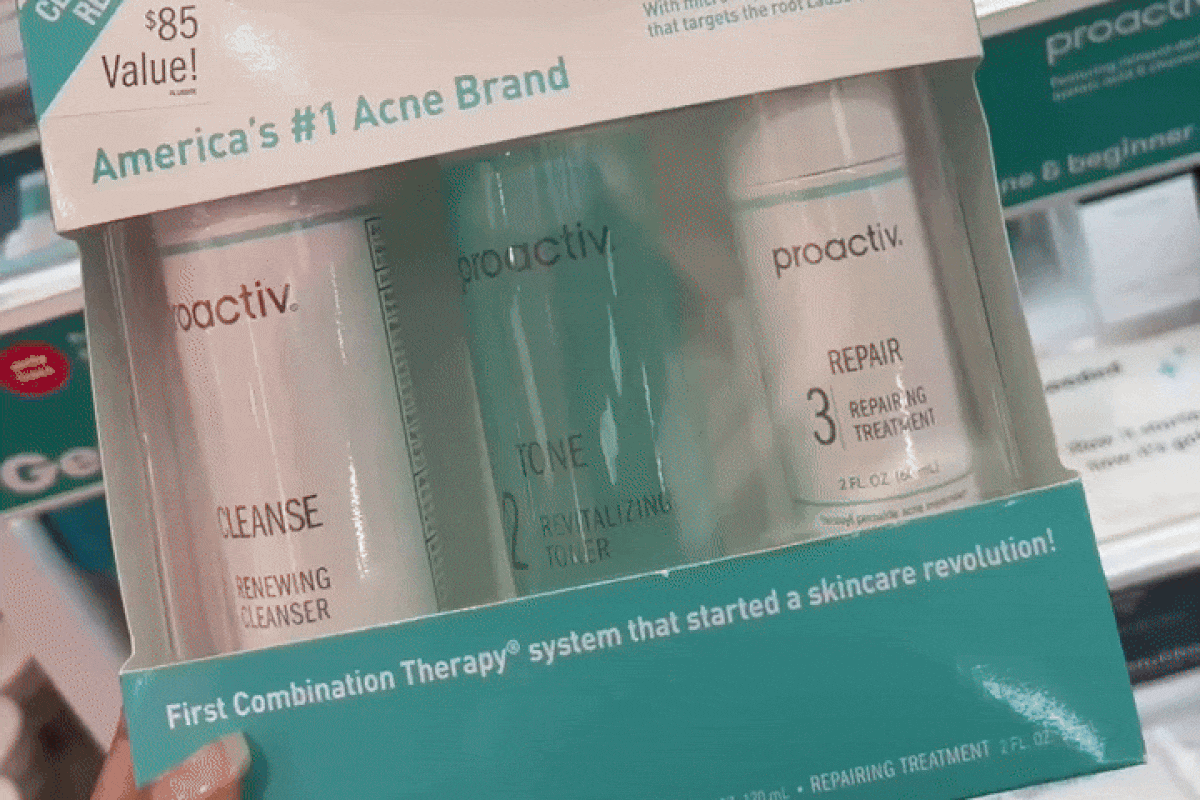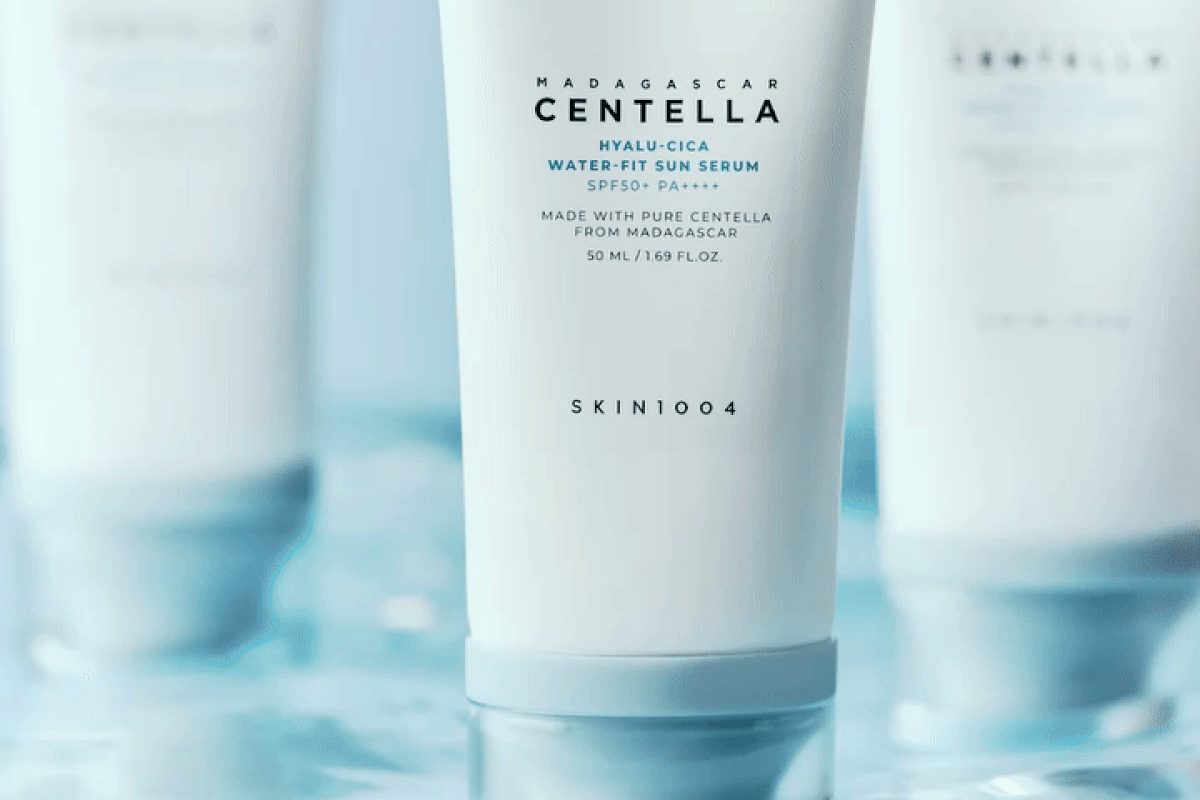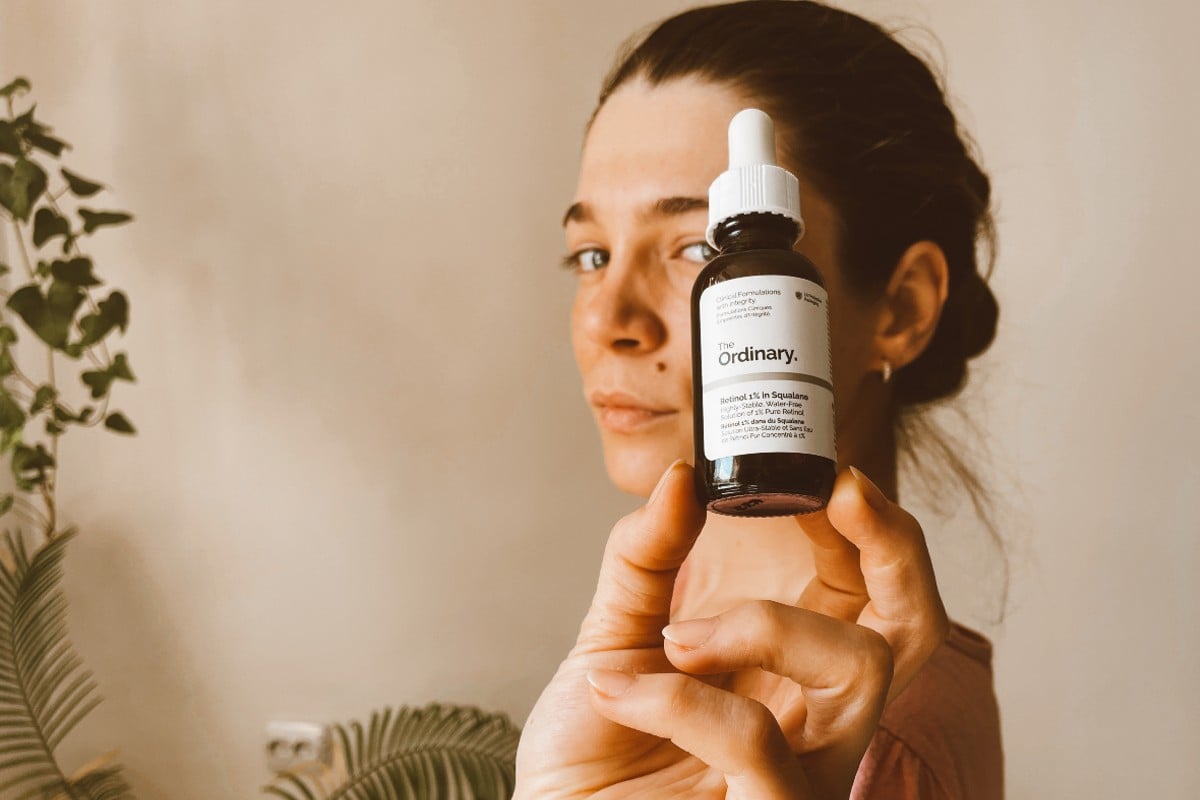- Carnosine is a naturally occurring peptide having multiple biological activities that benefit the skin.
- The research shows that both topical application and oral consumption of carnosine express skin-care benefits.
- One of the primary roles of carnosine in skincare is to protect against skin aging by fighting free radicals and reducing protein degradation.
- Other carnosine skin benefits include increasing cells lifespan, accelerating wound healing, and reducing cellular damage.
- Carnosine is considered safe and suitable for all skin types in concentrations up to 2%.
As we age, our skin loses vital proteins, synthesizes less collagen, and starts to lack the necessary components for maintaining its structure, firmness, and elasticity. One anti-aging solution is to topically supplement the skin by adding these nutrients to your skincare routine. Many you’ve seen in your favorite products like hyaluronic acid, collagen, and ceramides. But there’s one essential protein responsible for preventing the effects of cellular aging you’ve probably never heard of, carnosine.
What is carnosine?
Carnosine is a natural component found in skin tissues that has potent antioxidant and anti-inflammatory properties. More precisely, carnosine is a dipeptide — a combination of two amino acids, alanine and histidine — that supports the function and development of your muscles and brain. In skincare, studies have repeatedly shown that carnosine rejuvenates connective tissues and fights free radicals, preventing cellular damage and ultimately photoaging.[3]
In a cruel twist of fate, carnosine decreases rapidly in the body as we age, just when we need it most. Luckily, carnosine can also be synthetically produced for skincare formulations, expressing most of its skin benefits from oral and topical supplementation.
Carnosine could be your next line of defense against aging, and its skin protective effects shouldn’t be overlooked.
Carnosine skin benefits
Below, the carnosine’s benefits for skin and how to maximize its potential in your skincare routine!
Fights free radical damage, delaying skin aging
We’ve all heard about the dangers of free radicals to our skin. No matter how dedicated a sunscreen user is or how carefully you avoid environmental stressors like air pollution, the skin is constantly damaged by their effects.
Carnosine acts as an antioxidant, so it scavenges these free radicals responsible for causing oxidative stress in the skin, preventing the apparition of premature wrinkles and fine lines.[7] Carnosine also fights dangerous aldehydes — very reactive molecules known as skin irritants that are a likely contributor to age spots and inflammation.[7][9] Stopping DNA damage and fighting aging at its source is carnosine’s superpower!
Protects collagen and elastin proteins
If you thought that stopping free radical damage was a perk, wait till you hear how carnosine protects your skin from sugar. Wait, sugar?
Those sweet treats may be doing more harm than you think. Over time, in a process called glycation, sugar molecules cling to your proteins, forming products that stiffen and weaken collagen and elastin in the skin. Carnosine opposes the pro-aging glycation effect by breaking down those products and reversing the stiffening process.[5] This results in reduced protein degradation, which helps delay skin aging. As a matter of fact, glycation is considered one of the most impactful contributors to skin aging, and by reversing this process, carnosine plays a vital role in your skin’s youthfulness.
In one study, a cream containing carnosine protected skin from glycation and significantly reduced the levels of glycation in the skin.[4] Another study showed the topical application of a carnosine cream led to significant improvements in facial contour, with a 7% decrease in jawline sagging attributed to antiglycation.[2]
Increase the lifespan of skin cells
Another carnosine skin benefit is increasing the lifespan of skin cells. Normally a skin cell lives for about 2-3 weeks, reproducing about 52 times in the process until it dies. It seems that carnosine can increase the cellular life span by up to 67%, having restorative effects while enhancing cells’ capacity to divide.
Studies have shown carnosine can extend the Hayflick Limit — the number of times a cell can reproduce during its lifespan — and reduce the shortening rate of fibroblasts (the most common type of cell found in connective tissue).[6][10]
Because fibroblasts synthesize collagen and other essential proteins, they play a fundamental role in preventing skin aging and supporting wound healing. Thus, by stimulating fibroblasts, carnosine sustains healthy connective tissues as well as the integrity of the skin while minimizing aging marks.[11]
Is carnosine safe for skin?
Since our bodies naturally produce it, carnosine is considered safe for the skin and is not associated with harmful side effects.
Carnosine in skincare is synthetically produced as a biomimetic, which functions the same as the kind produced by the body.
The general concentration considered effective for use in skincare is anywhere between 0.05-2%, which is safe for topical use.[14] In many studies, carnosine has also been used in oral form and as an eye drop without adverse effects.[15][16]
How to use carnosine for skin
Topical carnosine is better to target specific skincare concerns since the free radical and aldehyde scavenging abilities are stronger when carnosine is applied to the skin.[5]
Using creams or gels containing carnosine is optimal as they are easily absorbed and have a greater effect on the skin. Besides, facial creams with carnosine showed stronger antiglycation activity compared to carnosine in water-based formulas.[4] Similarly, creams formulated with carnosine were found to visibly reduce aging signs by tightening, protecting, and increasing skin elasticity.[1][2] In another study, a gel formula containing magnesium boosted the absorption of carnosine by 60% compared to just carnosine alone.[13]
So looking for creams or gels products will maximize carnosine benefits for skin while also providing skin extra moisture and hydration. Look for products with 0.05-2% carnosine as this is the recommended strength. Whether you take it topically or orally, most studies regarding carnosine skin benefits showed first changes after a few months, so give the product time to deliver results.
The verdict
Carnosine is known as the protective anti-aging peptide for good reasons. In addition to the antioxidant and free-radical scavenging roles, carnosine also extends the skin cells’ lifespan, protects cells against aldehydes, prevents protein degradation, and reduces DNA damage. There’s also plenty of research into carnosine skin benefits with enough evidence to prove the importance of carnosine in maintaining healthy skin.
So from us, carnosine in skincare gets a huge YES.
- Guaitolini, Ennio et al. “Randomized, Placebo-controlled Study of a Nutraceutical Based on Hyaluronic Acid, L-carnosine, and Methylsulfonylmethane in Facial Skin Aesthetics and Well-being.” The Journal of clinical and aesthetic dermatology vol. 12,4 (2019): 40-45.
- Garre, Aurora et al. “Redefining face contour with a novel anti-aging cosmetic product: an open-label, prospective clinical study.” Clinical, cosmetic and investigational dermatology vol. 10 473-482. 13 Nov. 2017, doi:10.2147/CCID.S148597
- Quinn, Peter J. et al. “Carnosine: Its Properties, Functions And Potential Therapeutic Applications“. Molecular Aspects Of Medicine, vol 13, no. 5, 1992, pp. 379-444. Elsevier BV, https://doi.org/10.1016/0098-2997(92)90006-l.
- Narda, Mridvika et al. “Novel Facial Cream Containing Carnosine Inhibits Formation Of Advanced Glycation End-Products In Human Skin“. Skin Pharmacology And Physiology, vol 31, no. 6, 2018, pp. 324-331. S. Karger AG, https://doi.org/10.1159/000492276. Accessed 23 Dec 2021.
- Babizhayev, Mark A et al. “Skin beautification with oral non-hydrolized versions of carnosine and carcinine.” The Journal of dermatological treatment vol. 23,5 (2012): 345-84.doi:10.3109/09546634.2010.521812
- Shao L, Li QH, Tan Z. L-carnosine reduces telomere damage and shortening rate in cultured normal fibroblasts. Biochem Biophys Res Commun. 2004 Nov 12;324(2):931-6. doi: 10.1016/j.bbrc.2004.09.136. PMID: 15474517.
- Hipkiss, Alan R. “Carnosine, A Protective, Anti-Ageing Peptide?“. The International Journal Of Biochemistry & Cell Biology, vol 30, no. 8, 1998, pp. 863-868. Elsevier BV, https://doi.org/10.1016/s1357-2725(98)00060-0.
- Hipkiss, Alan R et al. “Carnosine and the processes of ageing.” Maturitas vol. 93 (2016): 28-33. doi:10.1016/j.maturitas.2016.06.002
- Guiotto, Andrea et al. “Carnosine And Carnosine-Related Antioxidants: A Review.” Current Medicinal Chemistry, vol 12, no. 20, 2005, pp. 2293-2315. Bentham Science Publishers Ltd., https://doi.org/10.2174/0929867054864796.
- McFarland GA, Holliday R et al. “Retardation of the senescence of cultured human diploid fibroblasts by carnosine“. Exp Cell Res. 1994; 212(2):167-75.
- McFarland GA, Holliday R. Further evidence for the rejuvenating effects of the dipeptide L-carnosine on cultured human diploid fibroblasts. Exp Gerontol. 1999; 34(1):35-45.
- Kohen, R. et al. “Antioxidant Activity Of Carnosine, Homocarnosine, And Anserine Present In Muscle And Brain.” Proceedings Of The National Academy Of Sciences, vol 85, no. 9, 1988, pp. 3175-3179. Proceedings Of The National Academy Of Sciences, https://doi.org/10.1073/pnas.85.9.3175.
- Dissette, Valeria et al. “Evaluation Of The Transepidermal Penetration Of A Carnosine Complex In Gel Formulation By 3D Skin Models“. Cosmetics, vol 5, no. 4, 2018, p. 67. MDPI AG, https://doi.org/10.3390/cosmetics5040067.
- Rona, C et al. “The cosmetic treatment of wrinkles.” Journal of cosmetic dermatology vol. 3,1 (2004): 26-34. doi:10.1111/j.1473-2130.2004.00054.
- IuF, Maĭchuk, V. E. Formaziuk, and V. I. Sergienko. “Development of carnosine eyedrops and assessing their efficacy in corneal diseases.” Vestnik oftalmologii 113.6 (1997): 27-31.
- Wang, A. M., et al. “Use of carnosine as a natural anti-senescence drug for human beings.” BIOCHEMISTRY C/C OF BIOKHIMIIA 65.7 (2000): 869-871.





